
Surely orchards are all about trees? Well actually what you do with the sward beneath your trees is key in terms of work, money and future management. For left to its own devices your orchard will soon begin to scrub up. To keep it as an orchard of free standing fruit trees with grass and wildflowers beneath you have to manage the sward in some way.
TO GRAZE OR TO MOW
There are essentially two choices or courses of action. You can cut or mow the orchard floor in some way, be that a regular mowing or an annual hay type cut. Or you graze it with livestock. If you mow your orchard you don’t need to endure the work and expense of individually guarding your trees, but you will need a mower, fuel and time (labour) to cut it. As well as preferably no deer in the area for even if you don’t have livestock of your own, the local deer population may be very partial to your fruit trees. For some small[holders grazing can be a more attractive and certainly a more traditional form of managing the orchard floor. But you will then need to protect your trees from the unwanted attention of your stock. Sheep are the commonest and the traditional orchard grazing tool and perhaps the easiest of the four legged mowers to accommodate, (in theory at least) being shorter in the leg and with less strength than horses or cattle both of whom present a huge challenge to keep off fruit trees.
TYPES OF GUARDS
2020 was the year I finally decided to graze my own orchard so I spent some considerable time researching options and experimenting accordingly. Essentially you need to prevent your livestock being able to reach any parts of the growing tree, for they will strip bark from the trunk, eat leaves and fruit, and pull down and tear off small branches.
This story is from the {{IssueName}} edition of {{MagazineName}}.
Start your 7-day Magzter GOLD free trial to access thousands of curated premium stories, and 9,000+ magazines and newspapers.
Already a subscriber ? Sign In
This story is from the {{IssueName}} edition of {{MagazineName}}.
Start your 7-day Magzter GOLD free trial to access thousands of curated premium stories, and 9,000+ magazines and newspapers.
Already a subscriber? Sign In
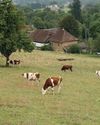
How to Buy a Smallholding in France- Long-time smallholder Lorraine Turnbull looks at the practicalities of moving to rural France
Aspiring smallholders are continually thwarted by the prices of smallholdings and property with land located within the UK. Even the humblest croft in Scotland comes with a substantial price tag and conditions which would make even an adventurous wannabee consider carefully. But all is not lost. For those willing to take the adventure of a lifetime, there is always Europe, and one of the most popular places is France.

Meet the Bournemouth goats and their supporters
These capricious animals are hard workers preserving the natural habitat
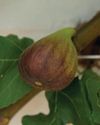
Still warm enough to sit outside with a Pizza
Henrietta Balcon uses fresh figs to create an unusual dish at Harvest time
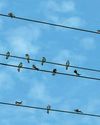
Goodbye to the birds of spring and summer
If you look and listen you might be able to see them preparing to leave says The RSPB
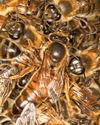
Get ready for the colder weather in the warmth of late summer
Claire Waring advises on doing the best to make sure your colonies survive until next spring
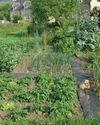
Preparing the Veg Patch for Winter
Lee Senior says, a well-run plot can excitingly continue to produce good quality, tasty, fresh food for much of winter
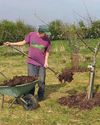
Time to prepare to plant your orchard
Wade Muggleton, smallholder and author of The Orchard Book, shares his practical experience so you can create your own fruit collection
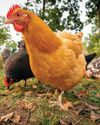
Choosing feed for the autumn
As autumn approaches, Joanna Palmer, nutritionist at the Smallholder Range, offers advice on choosing the right feed to support your adult birds through their annual moult and ensure your young birds grow and finish well at this time of the year.
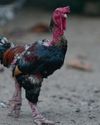
Vet advice from an experienced poultry vet
Reflecting on how much the humble hen has helped people world wide plus advice on stopping the scourge of red mite
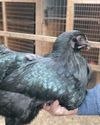
Give your hens some support
Paul Donovan looks at the right and wrong ways of handling birds